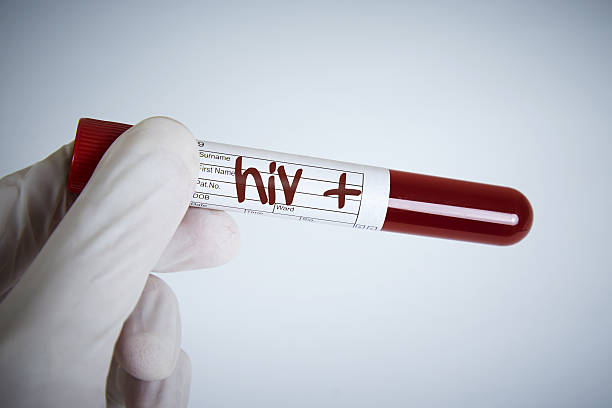Recognizing Early Signs and Symptoms of HIV Infection
HIV (Human Immunodeficiency Virus) is a serious virus that can lead to AIDS (Acquired Immunodeficiency Syndrome) if left untreated. HIV primarily spreads through sexual contact, but it can also be transmitted through contact with infected blood or from a mother to her child during pregnancy or breastfeeding. While HIV cannot be cured, it can be effectively managed with early diagnosis and treatment.
HIV (Human Immunodeficiency Virus) is a serious virus that can lead to AIDS (Acquired Immunodeficiency Syndrome) if left untreated. HIV primarily spreads through sexual contact, but it can also be transmitted through contact with infected blood or from a mother to her child during pregnancy or breastfeeding. While HIV cannot be cured, it can be effectively managed with early diagnosis and treatment.

Stages of HIV Infection
HIV infection progresses through different stages. In its final stage, known as AIDS, the immune system becomes severely weakened. However, not everyone with HIV will develop AIDS, especially with early diagnosis and the right treatment. The key to managing HIV lies in identifying symptoms early and seeking appropriate medical intervention.
Early Symptoms of HIV
HIV symptoms can vary widely from person to person, especially during the early stages of infection. Some people may experience flu-like symptoms within 2 to 4 weeks after exposure, while others may not feel sick at all. Common early signs of HIV infection include:
- Fever
- Headache
- Muscle and joint pain
- Sore throat
- Swollen lymph nodes
- Rash
- Night sweats
- Fatigue
- Mouth ulcers
These symptoms are often mild and can be easily mistaken for other viral infections. It's important to be aware that some people with HIV may not experience noticeable symptoms for years, even though the virus is still active in their body.
What to Do if You Experience Symptoms
If you suspect you’ve been exposed to HIV—whether through unprotected sex, sharing needles, or other possible exposures—it’s crucial to get tested. Early detection is the first step in managing HIV. A simple blood test is the only way to confirm if you have the virus.
Even if you don't feel sick, you could still transmit HIV to others, especially in the early stages when the virus is most concentrated in the bloodstream. Getting tested and starting treatment as soon as possible can help prevent the virus from spreading further.
HIV Treatment
Although HIV cannot be cured, it can be managed effectively with antiretroviral therapy (ART). ART involves taking a combination of medicines that work to prevent the virus from replicating in the body. The right treatment can help control the infection, keep the immune system strong, and prevent the development of AIDS.
Treatment plans are personalized based on a person’s health and medical history, so it's essential to work closely with your healthcare provider to determine the best approach.
Conclusion
HIV is a lifelong infection, but with early detection, treatment, and lifestyle changes, people with HIV can live healthy lives. Be proactive about your health—get tested if you suspect exposure, and follow your doctor’s advice for treatment.